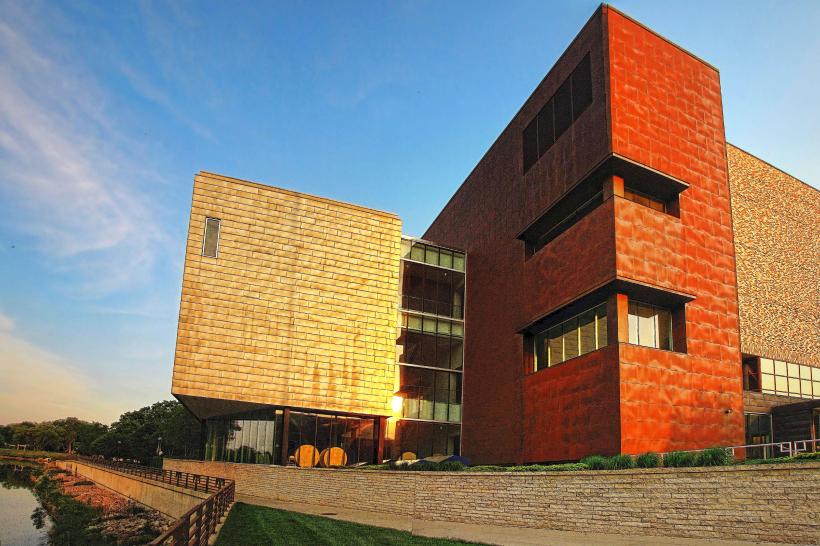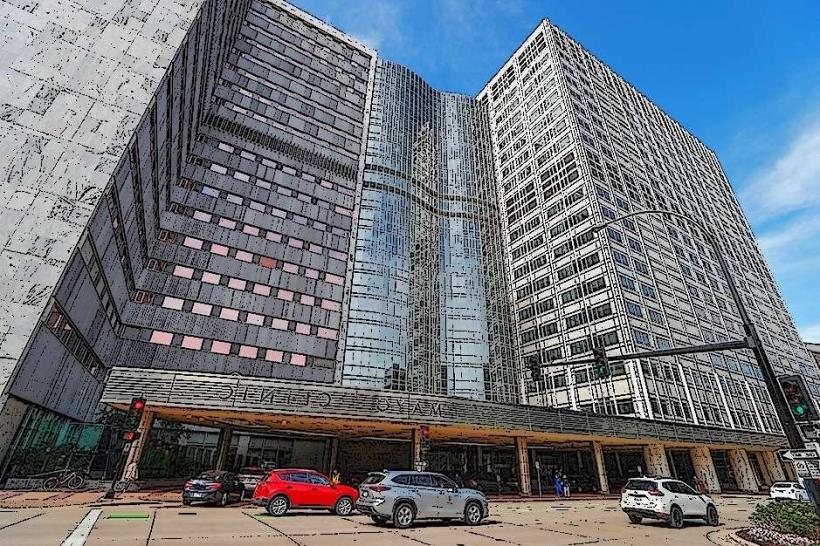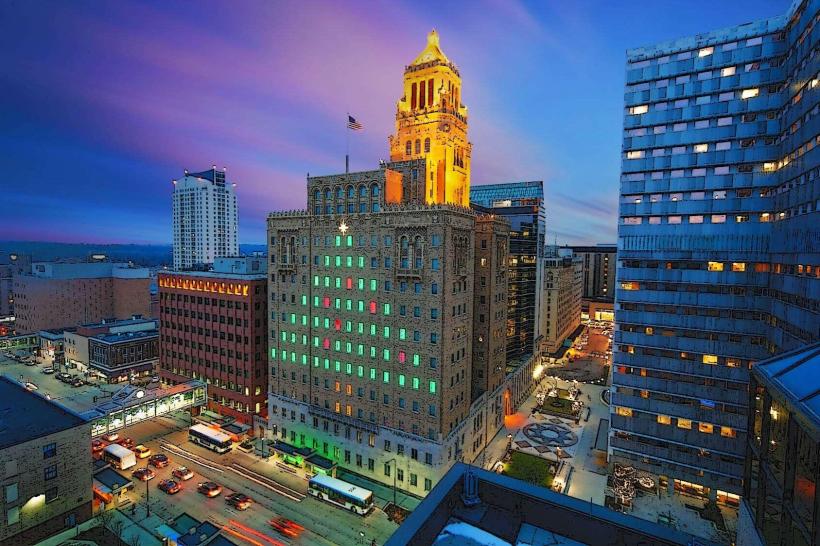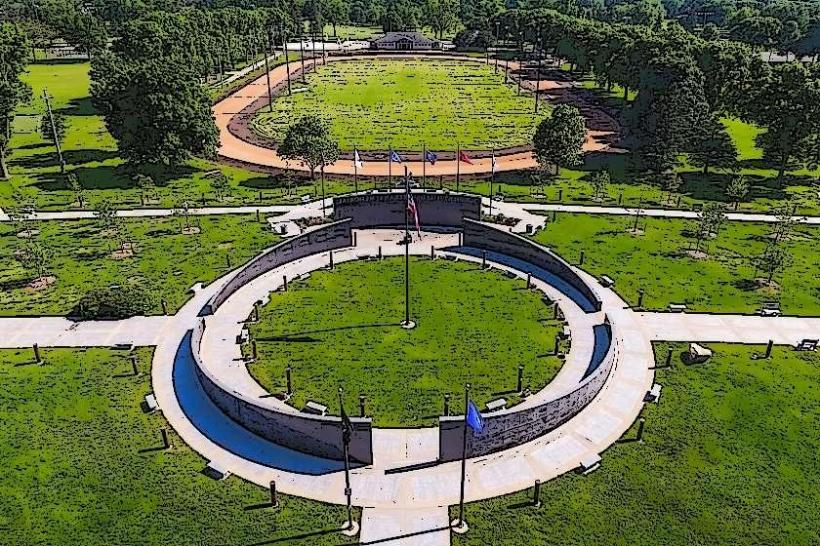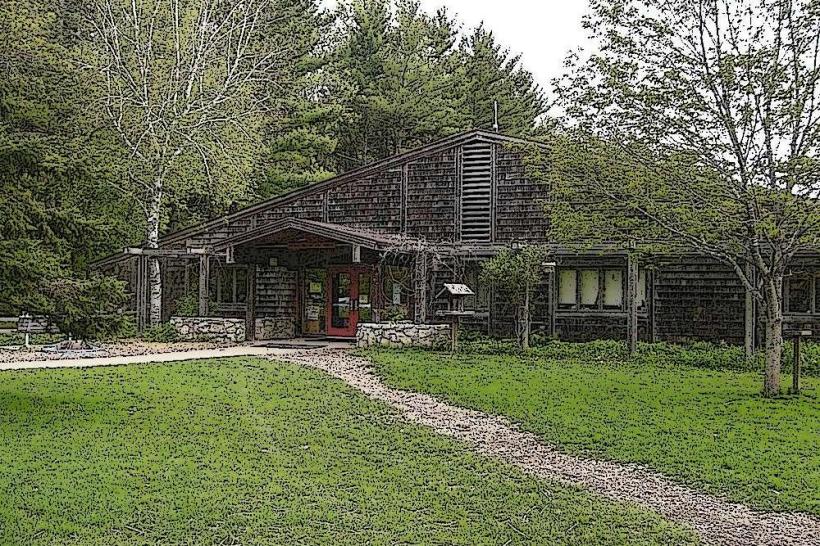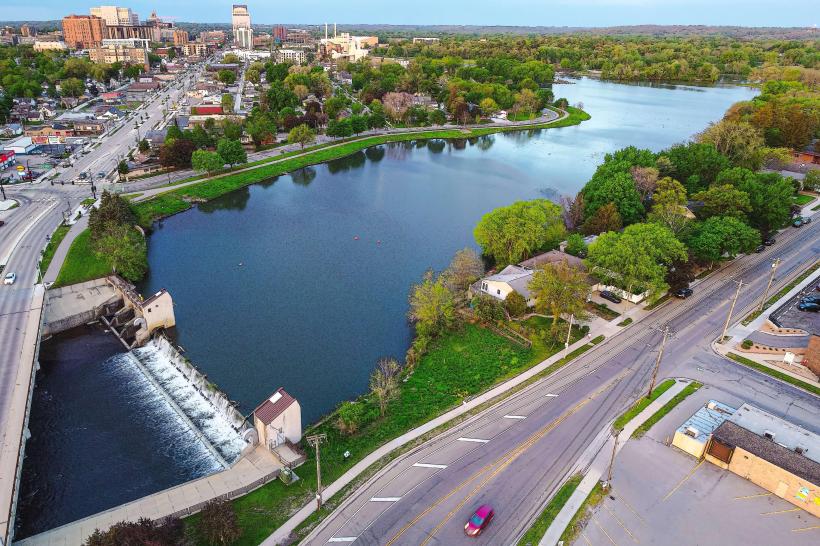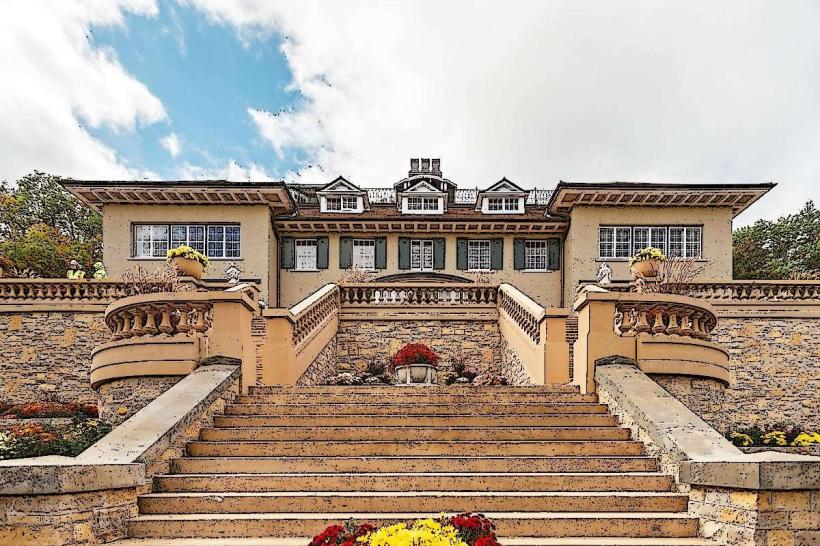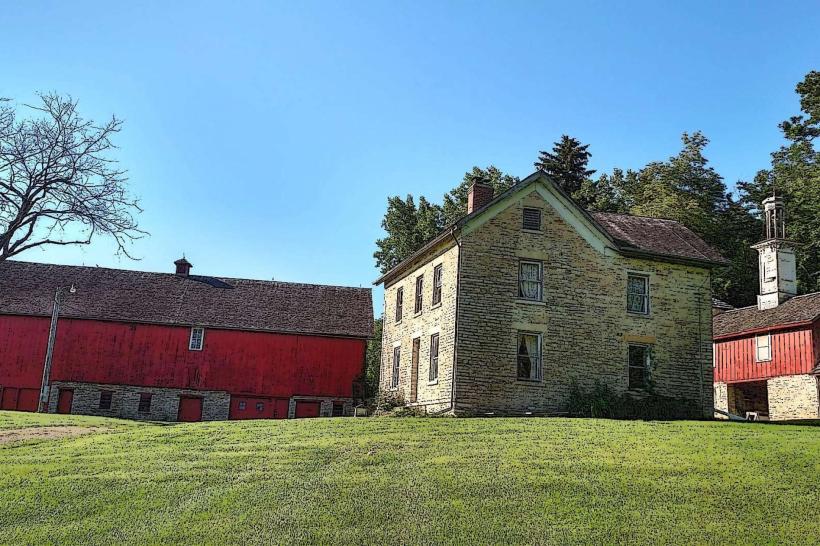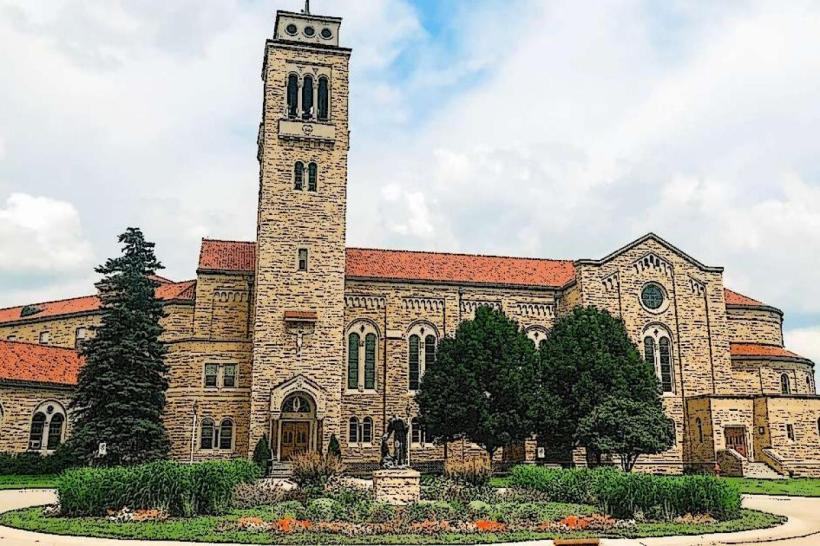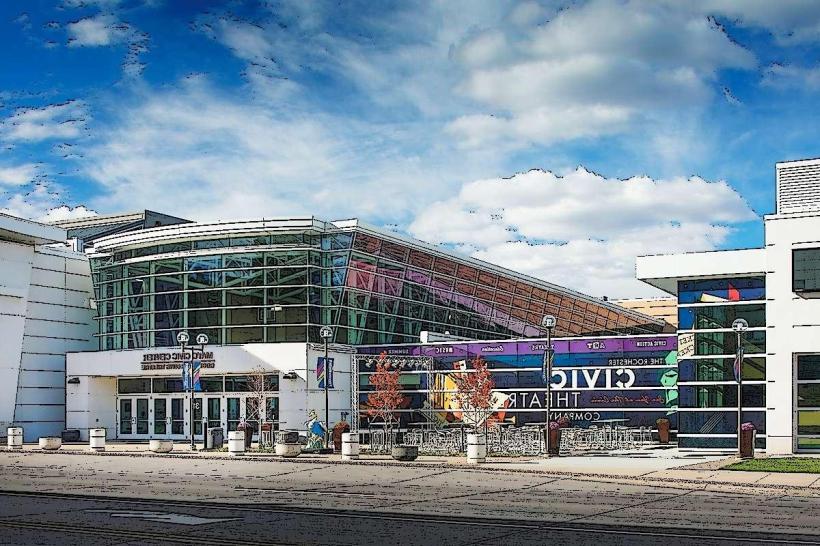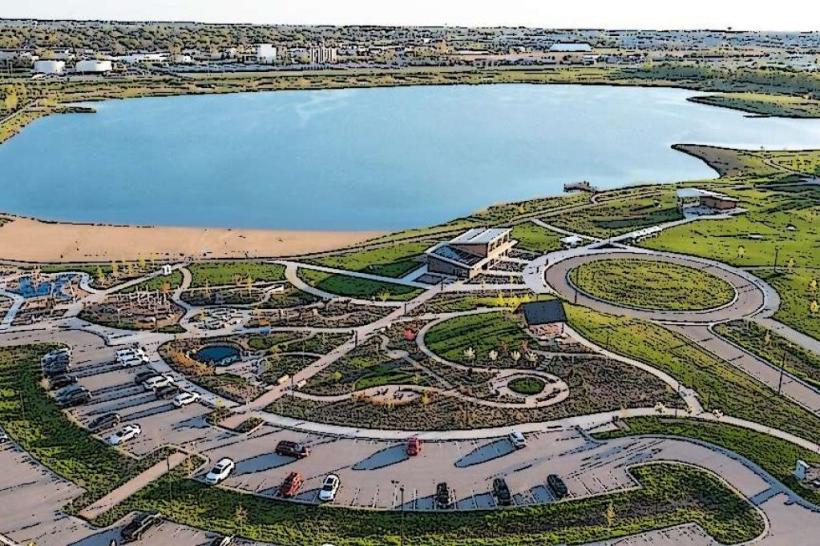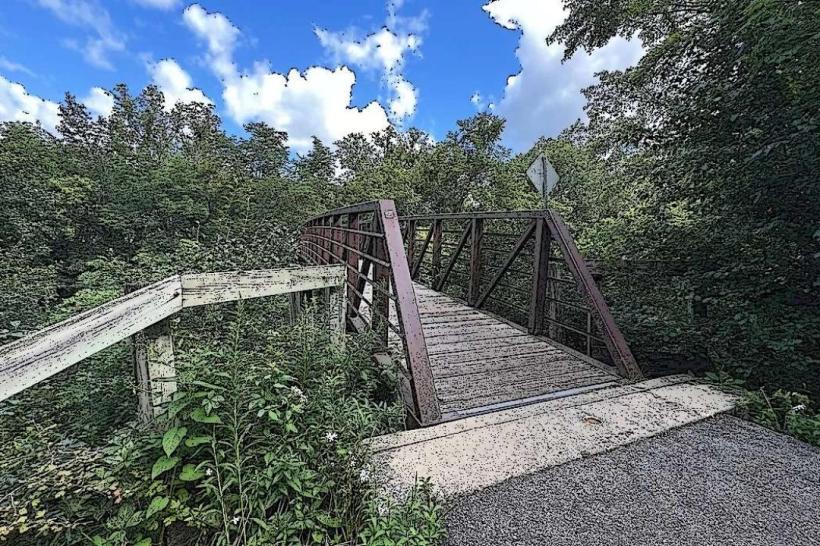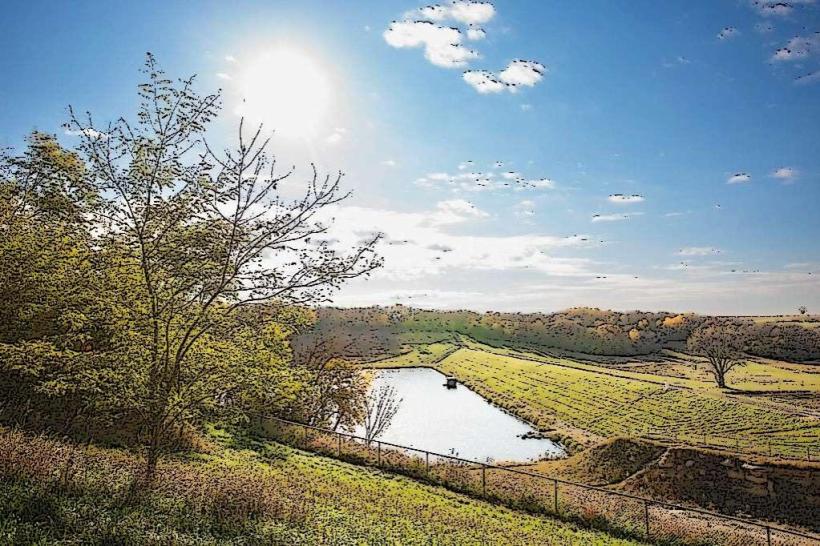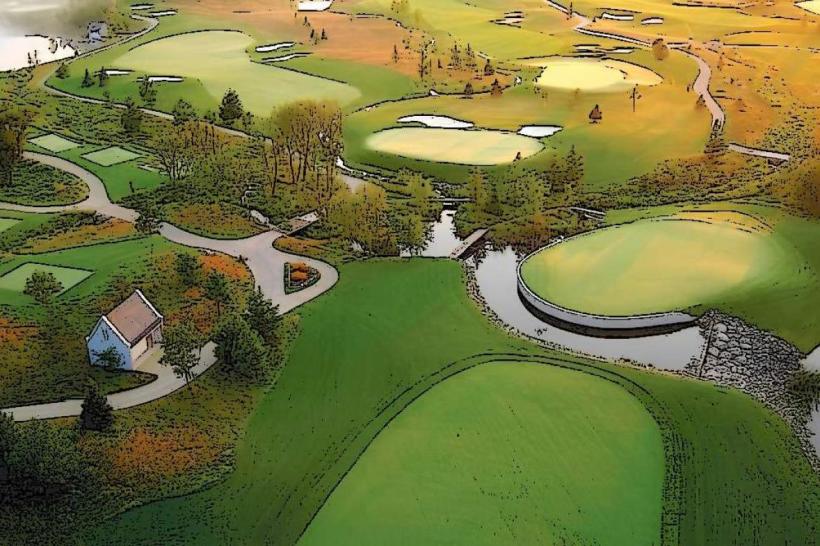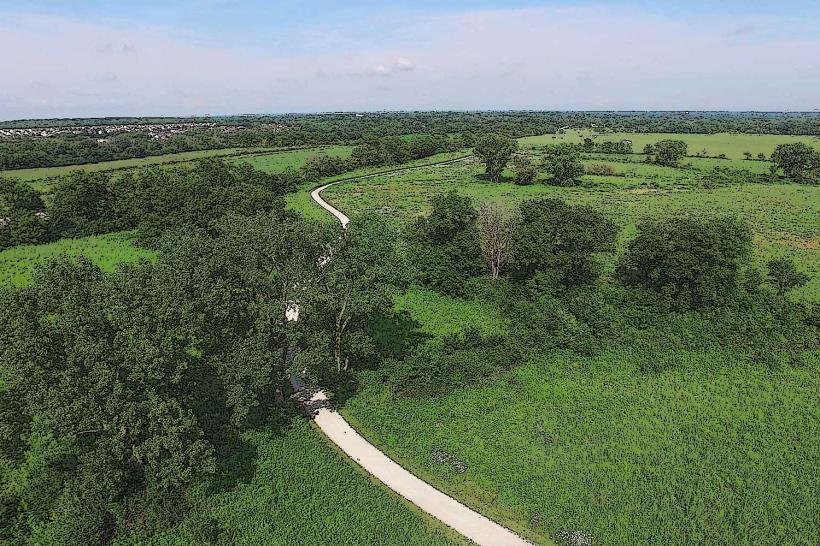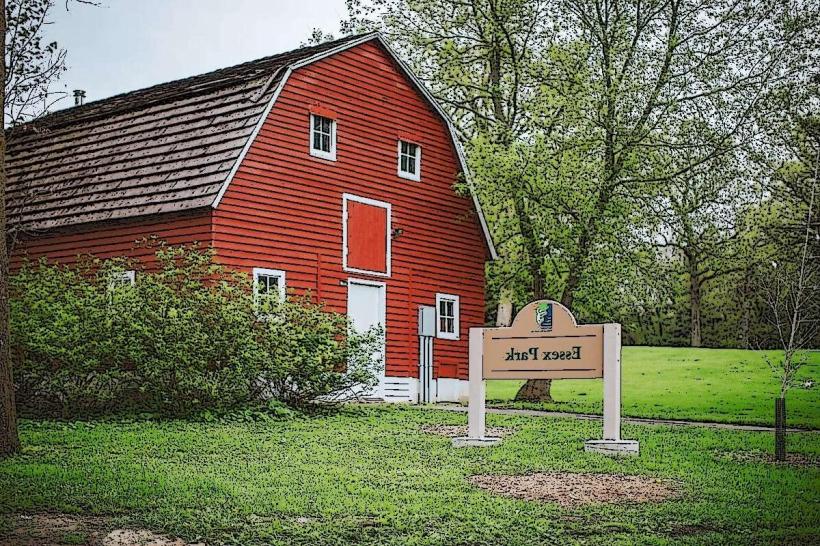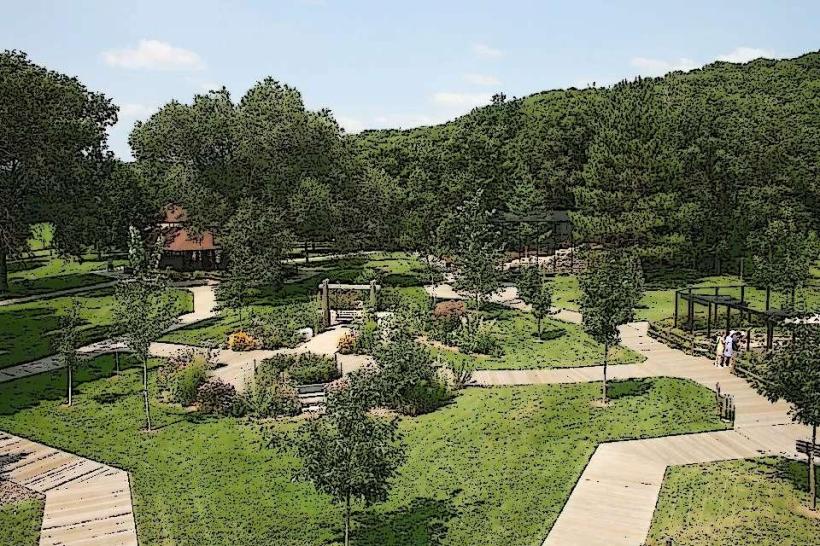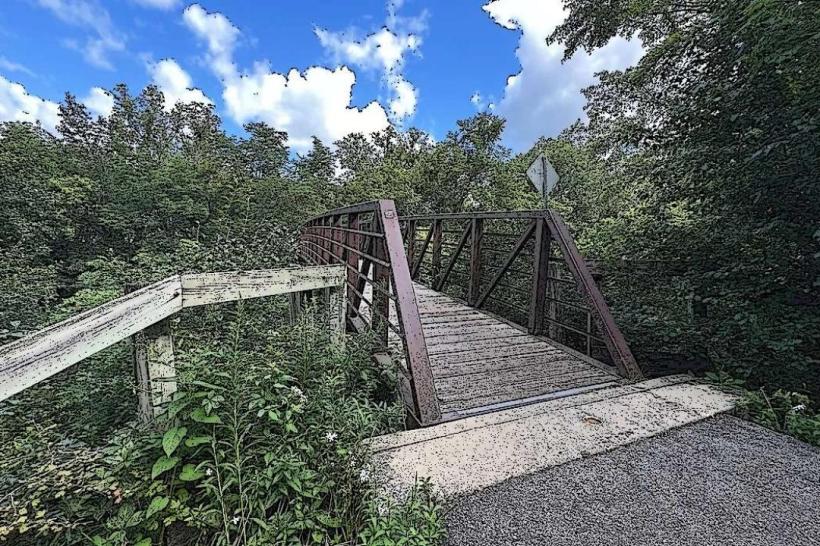Information
Landmark: Peace PlazaCity: Rochester MN
Country: USA Minnesota
Continent: North America
Peace Plaza, Rochester MN, USA Minnesota, North America
Peace Plaza – In Detail
Overview
Peace Plaza is the civic heart of downtown Rochester, Minnesota. It sits adjacent to the Mayo Clinic and has evolved from a simple plaza with a symbolic fountain into an expansive pedestrian-friendly cultural and social space. The plaza is notable not only for its central role in community life but also as a representation of Rochester’s global role in health and healing.
Historical Background
The original Peace Plaza was developed in the late 1980s as part of a beautification project in downtown Rochester. Its centerpiece, the Peace Fountain, was installed in 1989, designed by local sculptor Charles E. Gagnon. The fountain was both a public artwork and a symbolic gesture-promoting harmony, unity, and global peace, reflecting the humanitarian mission of the Mayo Clinic.
Over time, however, the space felt outdated, underutilized, and disconnected from the surrounding environment. This led to its inclusion in the Destination Medical Center (DMC) plan, Rochester’s ambitious multi-decade economic development initiative designed to improve infrastructure, culture, and public spaces in harmony with the growth of the Mayo Clinic.
Recent Redevelopment (2020–2022)
As part of the DMC’s Heart of the City district, Peace Plaza underwent a complete redesign between 2020 and 2022. The renovation was led by Coen+Partners, alongside local and national artists, architects, and accessibility experts.
Key updates included:
Full pedestrianization of surrounding streets
New paving and layout to promote walkability
Universal design for accessibility
Integration of sustainable features such as permeable pavement and heated sidewalks for winter use
Installation of modern public artworks, ambient lighting, seating, and trees
This transformation turned the plaza into a vibrant, flexible public space that now serves patients, residents, and visitors alike.
Peace Fountain
At the spiritual and symbolic center of the plaza is the Peace Fountain, which remains largely unchanged since its 1989 installation.
Design: The sculpture features 57 interlocking bronze doves, arranged in a flowing, vertical spiral. Each dove represents one of the 50 U.S. states and the seven continents, symbolizing peace and unity across national and cultural boundaries.
Interpretation: The highest three birds represent the past, present, and future. The flowing water suggests continuity, healing, and movement. It reflects the values of the Mayo Clinic: compassion, connection, and care for all people.
Cultural Recognition: The Peace Fountain has been recognized by UNESCO and remains a well-known visual icon for Rochester.
Public Art Integration
Peace Plaza was redesigned not just as a physical space but as a canvas for public art. Among the standout pieces:
Eric Anderson’s Wakefield
A system that emits gentle fog or mist in reaction to real-time events at the Mayo Clinic, such as births or patient discharges. It creates a poetic atmosphere that reflects life’s cycles.
Ann Hamilton & Gwen Westerman’s A Song for Water
Paving stones are etched with poetic texts and fragments from Dakota language and stories, grounding the plaza in Indigenous history and the natural rhythms of the region.
Iñigo Manglano-Ovalle’s A Not So Private Sky
A sculptural piece made of mirror-polished stainless steel that reflects the sky, people, and surrounding city, offering a constantly shifting perspective.
Interactive Features
Embedded lighting responds to movement.
Benches and installations are placed with both aesthetics and accessibility in mind.
A dedicated children’s exploration area and shaded gathering zones were added to enhance inclusiveness.
Function and Community Role
Peace Plaza is designed to serve multiple functions:
Public Events: The site hosts concerts, community festivals, outdoor markets, art fairs, holiday lighting events, and pop-up food stalls.
Seasonal Events:
Social-ICE (a winter event featuring ice bars and sculptures)
Thursdays on First & 3rd (a summer-long street fair)
Everyday Use: Locals gather here for lunch, reflection, or casual conversation. Patients from the Mayo Clinic often visit for fresh air and peace.
The space is intentionally designed to be calming, open, and full of sunlight. Seating is abundant and movable to allow groups or individuals to shape their own experience.
Sustainability and Accessibility
Sustainability and equity were fundamental to the redesign:
Heated sidewalks reduce ice accumulation and improve safety during winter months.
Permeable pavement helps manage stormwater runoff.
Universal access design ensures all features are reachable by those with mobility impairments.
The design process involved community input, including disability advocacy groups, to ensure that aesthetic beauty did not compromise usability.
However, some controversy emerged over uneven text-inscribed pavers, which proved problematic for wheelchairs and strollers. Modifications are ongoing to balance art with practicality.
Location and Layout
Location: Between 1st and 2nd Streets SW, centered on 1st Avenue SW.
Key Nearby Landmarks:
Mayo Clinic’s Gonda and Mayo Buildings
The historic Chateau Theatre
Shops, cafés, and Rochester Art Center
Pedestrian skyway and underground walkway connections
The plaza acts as a physical and symbolic gateway between the healing work of the Mayo Clinic and the civic life of Rochester.
Visitor Tips
Best Time to Visit: Spring through fall for events and public art exploration; winter for holiday lights and Social-ICE.
Accessibility: Fully wheelchair accessible, including ramps and heated walkways.
Amenities: Public seating, bike racks, nearby restrooms (inside connected buildings), free Wi-Fi, and shaded zones.
Photographing the Fountain: Early morning offers the best light for photos; avoid midday glare.
Conclusion
Peace Plaza is more than a public square-it’s a place of healing, remembrance, art, and community. Whether for Mayo patients seeking quiet refuge, local residents enjoying a downtown concert, or tourists admiring its sculptural beauty, the plaza remains one of Minnesota’s most meaningful urban spaces. It symbolizes the city’s commitment to blending wellness, art, sustainability, and inclusivity in a modern civic setting.

